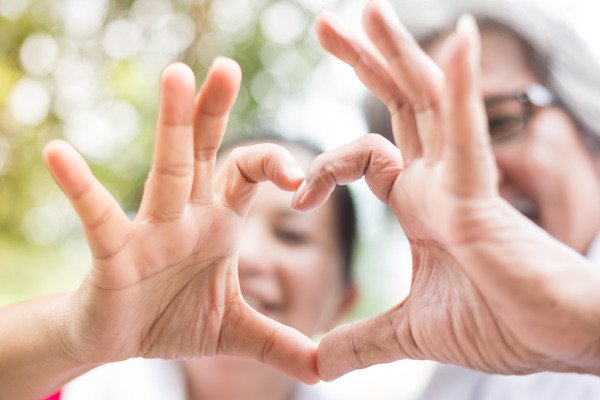Thanks to empathy with our own feelings and needs and those of others, and worrying about accepting and satisfying them, we will reduce our anger, as we will be more tolerant.

The gonna It is a problem that we all suffer from at different times in life. However, it is necessary to learn to control it and reduce its dimension because it makes us all suffer.
Let us keep in mind that as the Easterners say, “under anger, there is pain.”
What underlies anger is “non-acceptance”… often non-acceptance of our own unmet needs.
Although now we are not going to talk about how to manage it, but rather how to reduce it through the development of another fundamental skill: empathy. And it is that Empathy is crucial to reducing the intensity and frequency of anger attacks
People with anger naturally have difficulty in those moments with empathy and forgiveness However, empathy is a skill that must be developed and cultivated so as not to harm ourselves. Empathy is partly unconscious and automatic, but it is also possible to make a conscious choice and develop it with practice.
conscious empathy
The ability to feel empathy begins at the unconscious level. However, it can be developed as a conscious ability when a person is able to understand the feelings and intentions of another person and your own Therefore, it is possible to return to train our brain I can become more empathetic with effort and conscious practice.
To develop empathy, past experiences of the person give an important clue that facilitates precise knowledge, helping to understand their inner world and their current state.
Sometimes what is unusual is not that we have those sudden fires in our character, but serenity. Anger is becoming our “frequent” way of being in life We get upset at too many times; We become susceptible and getting out of control is the recurring note.
Anger can be directed against a particular person or situation. It is felt for a long time and is experienced as intolerance, annoyance, boredom.
At the same time, It is expressed through classic attitudes: shouting, remaining restless and tense, and always having a self-deprecating or critical comment for others on hand Physically it can manifest itself through an almost permanent frown, apathy, digestive problems and, most likely, difficulties sleeping properly.
If that’s your case, chances are In reality, you are angry with yourself
The reasons that have driven you to make enemies internally with who you are surely have to do with the mental models that you unconsciously manage. There are some parameters that you have chosen to evaluate yourself, without being very clear why, and that are only serving to fail you again and again There are also unresolved experiences in your past. That’s why you get angry, but you don’t know it.
When someone is crying, you might think about your situation and the things that make you feel sad. And when you feel the pain of others, you feel sad too. Everyone’s experience is unique, so relating it to your own experience may not be enough: the other person could be sad for different reasons that you don’t understand or have no knowledge about, but you can identify with their pain.
Free yourself to feel empathy
To be empathetic, It is necessary to air our prejudices In order to evaluate the other person’s pain, we must first reach out to ourselves, just as we must reach out to them, get to know their life, pay attention to what they have to say, listen to their feelings, and maintain full attention. the flow of the conversation.
Once the person opens up, you may be able to figure out what exactly is bothering them. This type of empathy requires a special type of connection A channel that is sometimes difficult to open but becomes more fluid with practice. And that within ourselves we have to cultivate all life. We are responsible for our thoughts and feelings but it is difficult to recognize them and look at them honestly.
In this context, it is important to understand that empathy also involves understanding thoughts and actions, and not just emotions. To be empathetic it is necessary to go beyond feelings and also understand the other person’s way of thinking, intentions and perception of the world.
This is what is called empathic concern People who are empaths also tend to show greater empathic concern for other people.
Therefore, if you are angry with another person, and you want to reduce the intensity of said anger, it is necessary that you develop both skills: empathy and empathic concern Empathy reduces anger, since eliminate negative judgments For its part, empathic concern also reduces anger, because the responses take into account the needs of the other, and our own, and help reduce those visceral reactions that characterize anger attacks.
understand the other
At its core, empathy is a skill that can be developed and improved. When you achieve it, you acquire a better understanding of one’s own internal world and that of the other person Thanks to empathy, anger can be reduced because we can feel more sensitive towards the difficulties, problems or situations that affect others by understanding and accepting our own.
If you forgive yourself, understand and accept yourself, you will be able to forgive others. If you love yourself, you will love others.
There is a negative correlation between empathy and anger. Anger tends to diminish a person’s ability to be empathetic. But if you show empathy with the other person, chances are you won’t get angry with them.
Coherence? Yes, something that has nothing to do with justification but with understanding the reasons that produce behavior Thus, for example, understanding the reactions that motivate aggression can help prevent it from occurring again.
A conflict is the “mental representation” of some events or situation, facts are one thing and interpretations another. And it is the interpretation of facts that antagonizes people. In fact, many crises begin from pure nothingness: a silence, an omission, a presupposition, an forgetfulness, a belief, an unexpressed request, an imaginary right…
Every problem has one or more solutions, and none lacks one. Rather, the opposing parties are those who need to resolve their mental positions before being able to negotiate a fair and dignified solution for all. The reality is that there is always an option to agree, what happens is that you don’t like it. But not all alternatives are easy, peace also has a price. The problem, the only one, is that the parties do not want to pay for it: they want a free exit, without concessions. It’s not realistic.
Every choice we make is ultimately a choice between peace or conflict. (The question to ask yourself is: does this choice I am making bring more or less peace to my life?)
What to do and how to react in a disagreement? The sooner we act, within ourselves, the better, because when tempers get hot, it takes a lot of water to cool them down again. When the problem begins to become visible, it is the best time to stop; Afterwards it may be too late.
The process is predictable and we have all experienced it on some occasion: a disagreement appears that may be minor or major and acts as a trigger, in an escalation of confrontations that end either in resolution, or in a point of no return that leads to the explosion. Since the problem has not been solved, but only put down by force, a new one will arise sooner or later as a consequence of the previous one.
Finally, win a confrontation It is a provisional victory. It may have benefits, but it surely also has costs. These are not always obvious. To prevent them, both parties should evaluate them, perhaps discovering that they are superior to the advantages they seek to achieve.
For example, the gain from maintaining a personal conflict with your partner could be: a feeling of control, manipulation, reinforcing self-image, winning power struggles, relief, recognition from others, being right and saying the last word… Everything we could call playing the superficial games of the ego.
And some examples of the costs: poor collaboration and worse quality of the relationship, sleep difficulties and health problems, loss of time and energy, loss of trust, worse communication, loss of joy, loss of happiness and inner peace… In short, neglect the deep needs of the spirit.
You have to learn to calm down
It must be taken into account that anger makes it difficult for people to calm down. AND calm is crucial for empathy, to be able to effectively understand the thoughts, feelings and intentions of oneself and others. Thus, by showing empathy with ourselves and our weaknesses and with the other person, violent reactions can be reduced. It is essential that we understand the true reason for our own anger, that we are honest with ourselves, but also tolerant and delicate, speaking to ourselves with patience and affection, as one does with a child.
When the person is angry, it is difficult to take into account the person’s thoughts, feelings and intentions. This, in turn, intensifies anger and causes the other person to be misjudged. This causes a label to be assigned to this person, so all their actions will be seen in light of it That’s why it’s also important to work on your labels and be more objective.
We each react differently.
There are individual differences in how people can cope with anger provocations and aggressive reactions. Some people have better training to manage someone else’s anger They have a greater habit of perceiving pain, shame, guilt, sadness, loneliness and fears that make them angry.
These people are able to put themselves in their shoes and understand their perspective, control their reactions and empathize with themselves as well as with the person next to them.
However, other people are more sensitive and internalize a lot of anger. They also tend to withdraw from what is unpleasant to them, inhibiting the expression of their feelings assertively, in an uninhibited, but also non-violent way, and, therefore, getting closer to satisfactory communication.
The key
Once we develop the ability to understand the pain within ourselves and others and the underlying dynamics of our own and the other person’s angry behaviors, so it is easier to cope with that reaction.
Being defensive and justifying anger can be counterproductive and will not make you an empathetic person. Try to listen to other people’s feelings and your own, connecting with yourself and them, and show sensitivity towards others and yourself, to develop empathy and empathic concern. There are techniques in psychotherapy that encourage us to talk to our inner child, so that we treat ourselves with the delicacy and tenderness with which we should treat a child.
Blanca Isabel Soria Arranz








